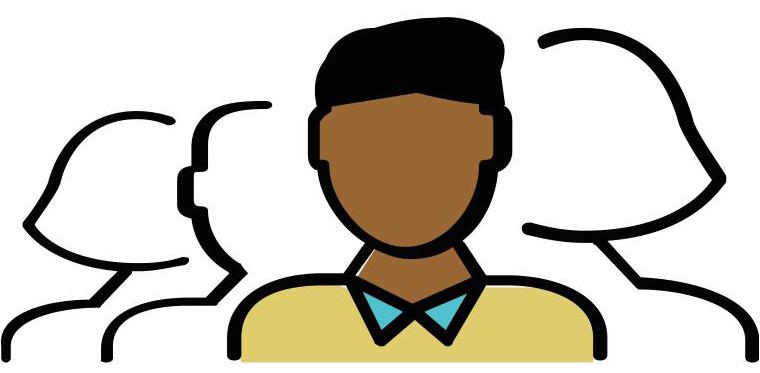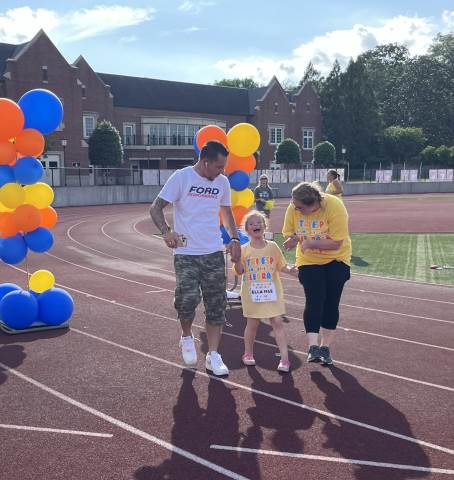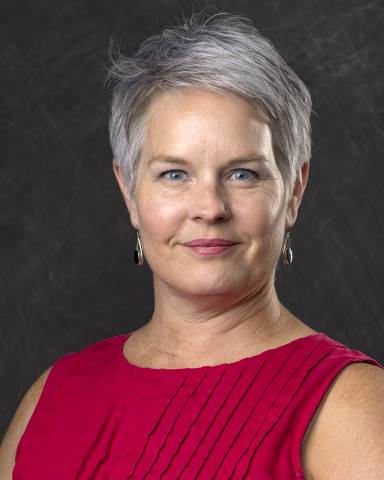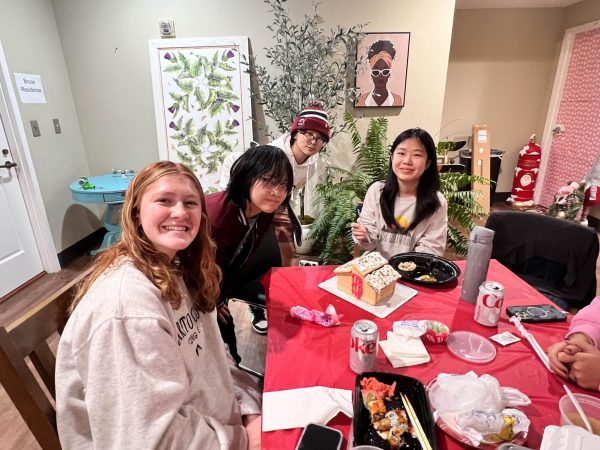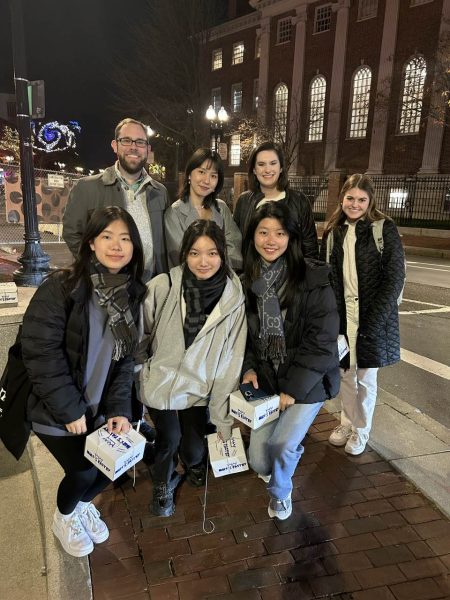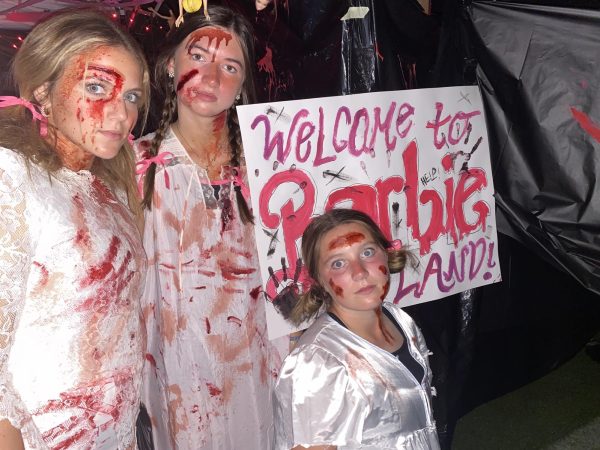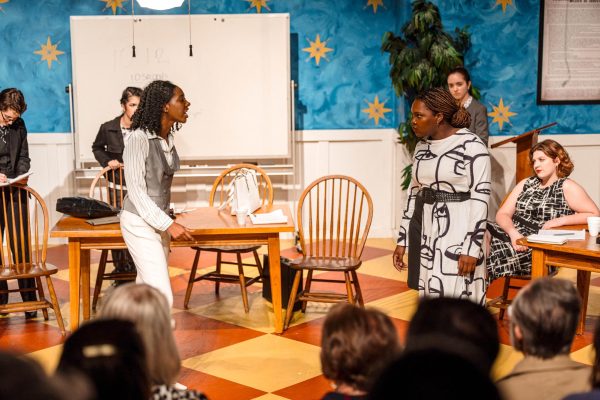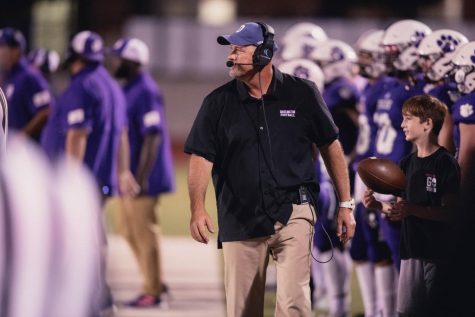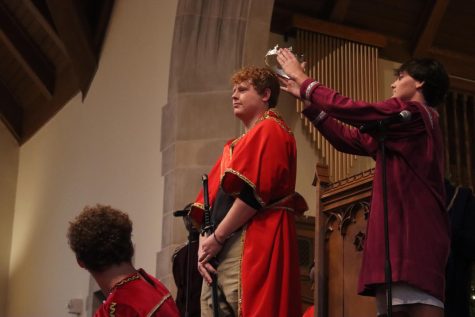Calling All Students of Color: We Hear You
Our student population is very diverse, but the diversity in not reflected in the staff.
Year after year, admissions goes into overdrive in an attempt to bring in students from every end of the earth and a variety of ethnic backgrounds. Each individual culture present in the student body comes together to enrich the school and is what makes this institution unique. Our school invests a considerable amount of emphasis on diversity amongst its students, yet under represents those diverse students in the faculty.
“We should seek to make our student body and our faculty correlate. We have such a beautifully diverse student body within our boarding students,” senior Palesa Molapo said. “Wouldn’t it be nice for them to have adult figures who aren’t just from the south or aren’t just born and raised in America, but are just as different as they are.”
Nonetheless, there are conversations taking place across our administration. Although it might not be very evident, we do have faculty, like Upper School Director Matthew Peer, who recognize our room for growth and are working to take steps toward progress.
“We as a faculty, in all honesty, are not diverse,” Peer said. “We may be diverse in our geographic locations. We may be diverse in our belief systems and ideology. But when it comes to ethnicity we are not as diverse as I believe that we should be.”
Absence of faculty of color is a problem that independent schools and elite colleges across the nation are having to deal with. It has led to a rise in enrollment at Historically Black Colleges and Universities, as many students opt not to subject themselves another four years of underrepresentation and uniformity. Institutions across the country are struggling with the solution to this issue. Head of School Brent Bell sees this issue, and says it is a priority at our school to fix it.
“Any student in any situation has the opportunity to express what’s on their minds, whether it’s a conversation about underrepresentation,” Bell said. “A sense of connection for all the students here is really important to me and something I worry a lot about.”
This evident lack of representation of the student population affects the Darlington experience amongst students of color and international students across the board. From conversations about homesickness to race, every student needs an outlet. Our students need someone who they feel truly understands and lives their culture and has not just read about it.
“The lack of diversity in Darlington’s faculty has given me limited options of people, women of color especially,” Molapo said. “There’s very few women at Darlington that look like me, that I see doing things that I want to do, that I want to pursue, that I can confide in, and that understand where I’m coming from as a young black girl going to a school away from home in an area that greatly differs from where I grew up.”
As the sole teacher of color present in the upper school, physics teacher Timothy Garrett understands this need in every aspect.
“If there is someone on the faculty that they could go to, another Asian on the faculty or administration, and they share some things with that person. That member can come back and share what’s going on with the students,” Garrett said. “It allows the students to know you are valued more than just academically, that everyone deserves a voice, and everyone deserves that voice to be heard, and the people that are going to hear that voice are gonna be very similar in race to you and will have that inherent understanding of what’s going on.”
This is not implying that a faculty member must be of color to be a student advocate. There are plenty of faculty present at Darlington with open minds to the issues that students of color face here at Darlington. Within the recently hired faculty there has been a large increase in diversity in geographic location, which has enhanced the conversations and issues discussed by faculty. However, the work is never done, and our school needs to continue its 100-year-old tradition of challenging each other to reach our fullest-potential.
Recently hired history department chair, Jonathan Wagshul, spoke with me about his days in the military and the search for diversity amongst the higher ranking officials.
“It wasn’t about discrimination,” Wagshul said. “It was about enriching the the conversations we had.”
Our school checks all the boxes when it comes to the quality of education its students receive, yet there is room for improvement when it comes to exposure. Here we see minorities doing more of custodial work and working the grounds, and it is important for many sheltered students to see minorities in all facets of life. This viewpoint is one that PamPam Akinyemi ‘16 wishes could have been present in her peers during her time at Darlington.
“It would have been better if there were faculty of color,” Akinyemi said. “Because then they wouldn’t only see black people as people who work in the dining halls and maintenance jobs.”
When hiring faculty, the administration looks towards hiring agencies to help bring in teachers who are passionate about their subjects and working with students. Many of these hiring agencies are not in a minority environment and many qualified candidates of color might not even know about these resources.
This leaves the question, what is the pathway to resolution?
With over ten new staff openings, this past year offered ample opportunity to seek out a more diverse staff. According to Peer, however, the resolution is not that simple, and there are outside influences that complicate the search for qualified faculty.
“We have done a much better job of doing nationwide and worldwide searches for faculty,” Peer said. “But for some people, as we are doing nationwide searches, Rome, Georgia, is not where they want to be at that stage of their life.”
Many believe the solution lies in bringing back those who contain the unique wisdom you can only gain from being a student of color at an elite school.
“Another solution would be to bring people to Darlington as a community we have alumni that we can use as resources that are from all over the world. I know that it’s very useful for students when people on the outside who have had the same education as us come back and talk to us about the way they feel,” Molapo said. “So when we bring back people of different cultures it’s inspirational to see people who have come from our background go out into the world and do amazing things and then come back to tell their tale.”
No matter the way we resolve this issue, one thing is clear: it is no longer going unnoticed, and it’s time to take some steps towards advancement.
“It has to become a priority and if it’s not a priority, then it’s just gonna fall along the wayside. So we just gotta make more of an assertive effort I hate to say it, but it starts at the top,” Garrett said. “You got to say this is what we want, this is what we’re gonna go get, go find someone.”


